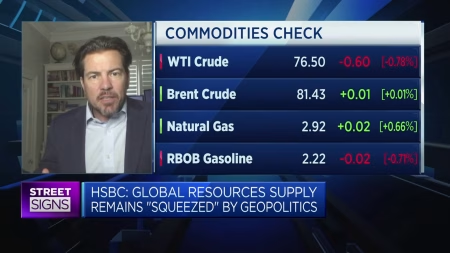Reliance Secures 1 Million Barrels of Crude Oil from KPC Kuwait
In a significant move that underscores Reliance Industries Limited’s (RIL) strategic intent in the global energy market, the company has secured an impressive cargo of 1 million barrels of crude oil from Kuwait Petroleum Corporation (KPC). This pivotal transaction not only emphasizes Reliance’s commitment to securing raw materials for its operations but also highlights its pursuit of operational efficiency in a volatile market. In this article, we dive deep into the implications of this acquisition, its impact on the oil landscape, and what it means for Reliance’s business moving forward.

Background on Reliance Industries Limited
Reliance Industries Limited is one of India’s largest conglomerates with a diverse portfolio that includes petrochemicals, refining, oil, telecommunications, and retail. Founded by Dhirubhai Ambani in 1960, the company has grown into a key player in the global marketplace, especially in the oil and gas sector.
Key Segments of Reliance’s Business
- Petrochemicals: Reliance is a leading manufacturer of petrochemical products. Its extensive product range serves multiple industries.
- Refining: RIL’s refining segment is one of the largest globally and plays a crucial role in catering to both domestic and international markets.
- Telecommunications: The company’s telecom subsidiary, Jio, has disrupted the Indian telecommunications market by offering competitive data pricing and extensive network coverage.
- Retail: Reliance Retail has rapidly expanded and is a major player in the Indian retail space.
Understanding the Crude Oil Acquisition from KPC
Securing 1 million barrels of crude oil from Kuwait Petroleum Corporation is a calculated move by Reliance, given the fluctuating nature of global oil prices and supply chains.
Why Kuwait Petroleum Corporation?
Kuwait Petroleum Corporation (KPC) is a state-owned entity that manages the country’s oil industry. With a proven track record of providing high-quality crude oil and strategic partnerships, KPC is a vital player in global energy markets.
Details of the Transaction
- Quantity: 1 million barrels.
- Quality: The specific grade of crude oil received will typically dictate refining processes and output.
- Significance: This agreement allows Reliance to stabilize its supply and manage its inventory strategically.
Factors Influencing Reliance’s Decision
- Market Supply and Demand: The global crude oil market can be unpredictable, and securing long-term contracts helps mitigate risks associated with price volatility.
- Refinery Needs: Reliance’s vast refining capacity necessitates a steady supply of crude oil to remain operationally efficient.
- Strategic Relationships: Strengthening ties with KPC can position Reliance favorably within the competitive oil market.
Implications of the Acquisition
The acquisition of crude oil from KPC is not just a supply agreement; it has broader implications for Reliance and the oil industry.
Positive Impacts for Reliance
- Operational Efficiency: A steady supply of raw materials can help ensure that Reliance’s refineries operate at optimum capacity, improving yield and profitability.
- Cost Management: By securing competitive pricing through direct agreements, Reliance can effectively manage its operating costs in a fluctuating market.
- Market Presence: This move strengthens Reliance’s presence as a prominent player on the global oil stage, potentially attracting more partnerships.
Broader Market Implications
- Supply Dynamics: Reliance’s procurement activities can influence local and international supply chains, impacting other players in the market.
- Price Trends: The nature of long-term supply contracts can affect market price stability, especially if large volumes of oil are locked in at favorable rates.
The Geopolitical Context
While market dynamics are essential, geopolitical factors also play a crucial role in oil acquisition strategies.
Relations with Gulf Nations
Kuwait is one of the major oil-producing nations in the Middle East, and strong ties with countries in the Gulf Cooperation Council (GCC) can be strategically beneficial for Indian companies like Reliance.
- Energy Security: Diversifying sources of crude oil reduces Reliance’s dependence on any single supplier, which is crucial given geopolitical tensions in the region.
- Regional Alliances: Strong relationships with KPC and other GCC nations may provide Reliance with preferential treatment in future dealings.
Challenges to Consider
Despite the potential benefits, challenges inherent in the oil market must be considered.
Price Volatility
- Global Market Fluctuations: Oil prices are subject to wild fluctuations based on multiple factors, including OPEC decisions, geopolitical conflicts, and economic indicators.
- Risk Management: Effective hedging strategies will be essential for Reliance to safeguard against adverse price movements.
Environmental Concerns
- Sustainability Goals: As the world shifts towards renewable energy, fossil fuel-dependent companies face increasing scrutiny regarding their environmental impact.
- Regulatory Pressure: Compliance with environmental regulations must remain a priority for Reliance to maintain its operational licenses.
Future Outlook for Reliance in the Oil Sector
Securing 1 million barrels of crude oil from KPC can be a stepping stone for Reliance as it navigates the complexities of the global oil market.
Strategic Positioning
Reliance must continue to refine its strategies in sourcing and refining oil to maintain its cutting-edge competitiveness in the market.
- Investment in Technology: Innovations in refining technology can help Reliance further improve its margins and reduce waste.
- Expansion of Refining Capacity: The company might consider investing in infrastructure improvements to increase refining capacity for additional cargoes.
Broader Energy Strategy
In a rapidly evolving energy sector, Reliance must keep pace with global shifts towards cleaner energy solutions.
- Diversification into Renewables: Exploring sustainable energy investments could position Reliance strategically for future growth as the energy landscape changes.
- Integrated Business Models: Embracing a model that integrates renewable sources with traditional oil and gas operations helps in maintaining resilience.
Conclusion
Reliance Industries Limited’s acquisition of 1 million barrels of crude oil from KPC Kuwait is a strategic move that reinforces its robust operational framework and long-term sustainability in the energy sector. As geopolitical factors shape the oil market, Reliance’s proactive approach to securing energy resources strengthens its operational efficiency and market positioning.
With the volatile nature of crude prices and evolving consumer behavior toward energy consumption, Reliance’s future operations can hinge on adaptive strategies that balance traditional oil and gas practices with an eye toward sustainable innovations. This acquisition could serve as a foundational element in Reliance’s ongoing journey to establish itself as a leader in both the traditional and the renewable energy landscapes.
Relevant External Links
- Kuwait Petroleum Corporation (KPC) Official Site
- Reliance Industries Limited – Official Website
- Investing in Oil Markets
Internal Links
- Learn about the Impact of Global Oil Prices.
- Read our article on The Future of Renewable Energy.
Note:
To maximize the SEO impact of this article, consider:
- Promoting it through social media platforms to drive traffic.
- Engaging in discussions on finance and energy forums to generate backlinks.
- Regularly updating the content with new developments in the oil market for relevancy.








